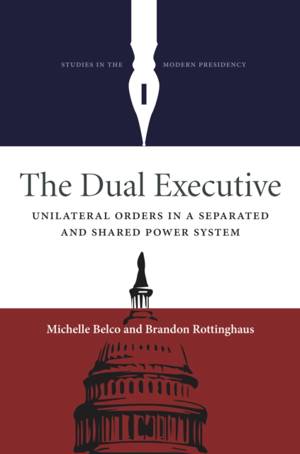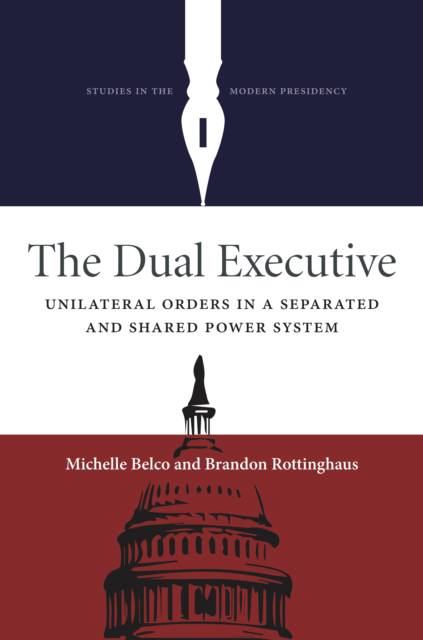
- Retrait gratuit dans votre magasin Club
- 7.000.000 titres dans notre catalogue
- Payer en toute sécurité
- Toujours un magasin près de chez vous
- Retrait gratuit dans votre magasin Club
- 7.000.0000 titres dans notre catalogue
- Payer en toute sécurité
- Toujours un magasin près de chez vous
The Dual Executive
Unilateral Orders in a Separated and Shared Power System
Michelle Belco, Brandon RottinghausDescription
Popular perception holds that presidents act "first and alone," resorting to unilateral orders to promote an agenda and head off unfavorable legislation. Little research, however, has considered the diverse circumstances in which such orders are issued. The Dual Executive reinterprets how and when presidents use unilateral power by illuminating the dual roles of the president. Drawing from an original data set of over 5,000 executive orders and proclamations (the two most frequently used unilateral orders) from the Franklin D. Roosevelt to the George W. Bush administrations (1933-2009), this book situates unilateral orders within the broad scope of executive-legislative relations. Michelle Belco and Brandon Rottinghaus shed light on the shared nature of unilateral power by recasting the executive as both an aggressive "commander" and a cooperative "administrator" who uses unilateral power not only to circumvent Congress, but also to support and facilitate its operations.
Spécifications
Parties prenantes
- Auteur(s) :
- Editeur:
Contenu
- Nombre de pages :
- 256
- Langue:
- Anglais
- Collection :
Caractéristiques
- EAN:
- 9780804799973
- Date de parution :
- 02-05-17
- Format:
- Livre relié
- Format numérique:
- Genaaid
- Dimensions :
- 152 mm x 229 mm
- Poids :
- 544 g

Les avis
Nous publions uniquement les avis qui respectent les conditions requises. Consultez nos conditions pour les avis.






